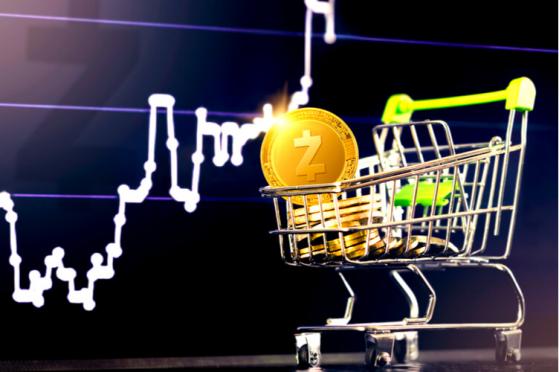ZCash (ZEC) was stagnant for weeks between $200 and $300, but now the coin has started to move on robust volumes as Gemini announced support for the coin. ZEC added around 32% overnight to $333.92, up 17% net in the past seven days. The asset, which recently adopted an exploratory stance on ASIC resistance, is awakening from its sleep - but it is unknown yet if it can recover the levels of nearly $900 reached in December.
ZEC is a low-supply coin, with just 3.9 million coins available. But the trading on niche exchanges and the low popularity meant the price was stagnant, despite the organized marketing efforts.
!ZEC!
Trading on Gemini means a small potential for an addition to Coinbase. The best-used, fully legal service has done wonders for the price of assets. This year, Coinbase promised to expand its asset base, but has not moved beyond adding Bitcoin Cash (BCH). So far, it is unknown if ZEC would be among the selected assets, but if so, some see it easily vaulting $1,000.
https://twitter.com/zcashco/status/996036332312023041
However, ZEC comes with a warning for being highly volatile once volumes dwindle. With the support of Gemini, that problem could soon be solved, as dollar volumes easily flow to support in-demand assets.
ZEC is an anonymous coin of the type that has raised doubts with regulators. But this time, the official permission may calm doubts.
https://twitter.com/GeminiDotCom/status/996022089072218115
The Gemini exchange will extend a rigorous KYC and transparency process to users. Additionally, sending ZEC to exchanges may mean some users will have to sacrifice anonymity. Paying with ZEC has options to expose the sender and receiver. Anonymous coins are always at least in part de-anonymized when sent to exchanges, otherwise risking to be lost.
The ZCash project announced it is setting out to explore the influence of ASIC mining on the network, with no immediate plans for an ASIC-disabling update. A community vote will be held on the issue in the coming weeks. Meanwhile, social media users remind that Venezuela, a state where crypto coins are popular due to hyperinflation, may lose its mining profits, being unable to import brand-new expensive machines under an embargo. Venezuelan miners rely on GPU-mined coins, which require non-specialized hardware.
This article appeared first on Cryptovest
